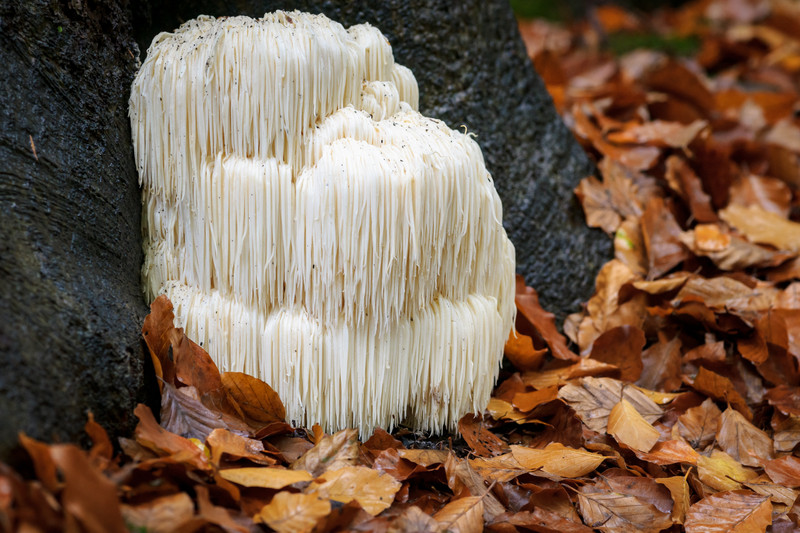After starting out with a plan to feature a few lesser-known natural remedy products spread over two or three blogs, we ultimately decided to expand our “Unsung Supplements” series. The more we dug through our files looking for supplements worthy of this special mention, the more we kept coming across additional fascinating products with great stories to tell.
So here we are, with Part VII of this now-extended series, this time featuring three over-the-counter natural remedies that, between them, offer unique health benefits not found in many other supplements, vitamins, or herbs. Perhaps you or someone you know is dealing with a health condition for which very few, if any, products are readily available to handle the particular problem(s). Some solutions toward that end might be provided below as we “dig in” for a quick look at lion’s mane mushroom, rutin, and D-mannose.
Three Unsung Supplements to Consider
Lion’s mane mushroom: Surely, you’ve heard of the expression about having some of “the hair of the dog that bit you,” as a morning-after remedy for excessive alcohol consumption. In this case, we’re not talking about social drinking or even live animals. The expression “lion’s mane” has nothing to do with a real lion, but a type of mushroom shaped like a lion’s head and mane. Lion’s mane mushroom is large, white, and shaggy, and it also makes for an epicurean delight that tastes like seafood (crab and lobster often get mentioned) and contains an assortment of bioactive compounds with wide-ranging health-related benefits, especially suitable for the heart, brain, and intestines. One of the mushroom’s better-known assets is its potential for mitigating the gradual loss of cognitive abilities in older adults diagnosed with dementia or Alzheimer’s disease. Credit that to two of lion’s mane mushroom’s components, hericenones and erinacines, a pair of compounds that can trigger the growth of brain cells. Another aspect of lion’s mane’s beneficial effects is its anti-inflammatory properties, which can possibly reduce the chronic inflammation at the root of anxiety and depression, and enhance the function of the hippocampus, the area of the brain that processes emotional responses. Lion’s mane mushroom’s various other potential health benefits include safeguarding your gut by bolstering the immune system and aiding the growth of healthy bacteria at work in digestion; and helping to maintain healthy cholesterol and blood pressure levels, among other benefits.
Rutin: Rutin is sourced from a variety of fruits and vegetables and, as plant pigment, it is a bioflavonoid with potent antioxidant attributes that make it able to assist in the body’s production of collagen and in the processing of ingested vitamin C. Rutin can also enhance the circulation of blood throughout your body by assisting in strengthening and enhancing the flexibility of blood vessels, at the same time reducing unhealthy cholesterol levels. Rutin can be found as an ingredient in various types of foods, although most of those food sources aren’t what you might consider mainstream – edibles such as buckwheat, figs, unpeeled apples, black tea, and asparagus. Of all its purported benefits, rutin’s best-known role could be its suitability for treating swelling in the arms and legs related to lymphedema and osteoarthritis. It’s even found in some sun-protection products for the skin.
D-Mannose: In addition to being a component of natural remedies, D-mannose is produced naturally in the body – making it a “simple sugar” (as one of nine natural monosaccharides) -- and can be found in a number of different types of fruits. It is also available in supplement form (otherwise we wouldn’t be talking about it here). D-mannose’s best-known, health-inducing attribute is as an alternative treatment for urinary tract infections (UTIs), which are ordinarily treated with prescription medications – typically antibiotics -- under the supervision of a healthcare professional. Among the other health challenges that can be addressed by D-mannose are carbohydrate-deficient glycoprotein syndrome (CDGS) type 1b, a hereditary disease involving the loss of protein in the intestines, and dysbiosis, which is characterized by an imbalance of good and bad bacteria in the digestive system. This latter condition can be countered by D-mannose’s prebiotic nature in stimulating an increased growth of “good” bacteria.
If you have the intent or at least some interest in adding any or all of these three natural remedies to your daily supplement regimen, please take the time to discuss the pros and cons or such use with your personal physician or other healthcare professional, especially if you are already on medications.

